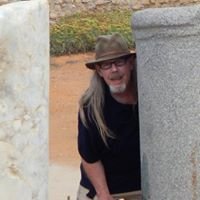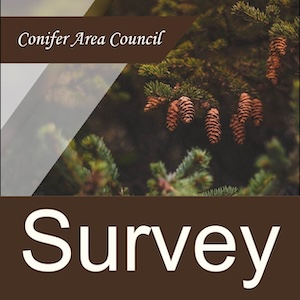- Posts: 7163
- Thank you received: 21
Colorado snowpack is significantly below average so far
- Reverend Revelant
-

- Mountain Legend
-

Photo-fish wrote:
[snip]
One does not need to look up NOAA data or be any type of scientist to recognize a lack of precipitation. The guy in the article I linked to has 28 years monitoring snowpack at the same locations so I put some weight in his opinions and included his quote.
[snip]
The same kind of weight that NOAA put's in their snowpack figures (as I linked to above) "And the caveat at the bottom of the official NOAA chart... "[Pages are for curiosity only; there are no guarantees that the data is correct.]" What a f'king laugh"
Waiting for Armageddon since 33 AD
Please Log in or Create an account to join the conversation.
- Photo-fish
-
 Topic Author
Topic Author
- Mountain Legend
-

- Posts: 3975
- Thank you received: 14
´¯`•.. ><((((º>`•´¯`•...¸><((((º> ´¯`•.. ><((((º>`´¯`•...¸><((((º>´¯`•.. ><((((º>`•´¯`•...¸><((((º> ´¯`•.. ><((((º>`•.´¯`•...¸><((((º>
Please Log in or Create an account to join the conversation.
- Martin Ent Inc
-

- Mountain Legend
-

- Posts: 6540
- Thank you received: 0
Please Log in or Create an account to join the conversation.
- Photo-fish
-
 Topic Author
Topic Author
- Mountain Legend
-

- Posts: 3975
- Thank you received: 14
´¯`•.. ><((((º>`•´¯`•...¸><((((º> ´¯`•.. ><((((º>`´¯`•...¸><((((º>´¯`•.. ><((((º>`•´¯`•...¸><((((º> ´¯`•.. ><((((º>`•.´¯`•...¸><((((º>
Please Log in or Create an account to join the conversation.
- Martin Ent Inc
-

- Mountain Legend
-

- Posts: 6540
- Thank you received: 0
Please Log in or Create an account to join the conversation.
- Photo-fish
-
 Topic Author
Topic Author
- Mountain Legend
-

- Posts: 3975
- Thank you received: 14
´¯`•.. ><((((º>`•´¯`•...¸><((((º> ´¯`•.. ><((((º>`´¯`•...¸><((((º>´¯`•.. ><((((º>`•´¯`•...¸><((((º> ´¯`•.. ><((((º>`•.´¯`•...¸><((((º>
Please Log in or Create an account to join the conversation.
- navycpo7
-

- Mountain Legend
-

- Posts: 2093
- Thank you received: 26
Photo-fish wrote:
No year in the past three decades that has started this far below average has recovered to average snowpack by the start of spring.
http://www.denverpost.com/news/ci_19643668
Last year Bear Creek Basin and N. Fork of the S. Platte really got the shaft. It looks worse this year. Anyone plannig on a lawn this summer may want to reconsider. Fire season will be early too. Hopefully we can have avery wet spring and cooler summer.
There are a lot of wells out there that if the snowpack does not increase, then those wells will decrease. I work in the well business. I have folks ask me all the time. Especially the ones that were told there is aquafers up here in the mountains.
Please Log in or Create an account to join the conversation.
- lionshead2010
-

- Mountain Legend
-

- Posts: 789
- Thank you received: 0
1. The aspen tree die off we see may be due to drought and not pocket gophers so no need to poison the little critters.
2. If we don't get good late winter and spring rains and snows then plan on an early fire season. Do your mitigation in March instead of April.
3. Just because your HOA didn't have to plow much snow this year doesn't mean you won't need the money next year so stop the legal fights over stupid sh-t and save up for plowing next year.
4. If wells are already struggling at some homesteads then maybe we don't need hundreds of new homes sucking from the ground at Shaffers Crossing and Pine Junction.
Please Log in or Create an account to join the conversation.
- Martin Ent Inc
-

- Mountain Legend
-

- Posts: 6540
- Thank you received: 0
Seems this is only affecting trees at lower elevations.
Source RMEF
Please Log in or Create an account to join the conversation.
- bailey bud
-

- Mountain Legend
-

- Posts: 1849
- Thank you received: 0
Please Log in or Create an account to join the conversation.






